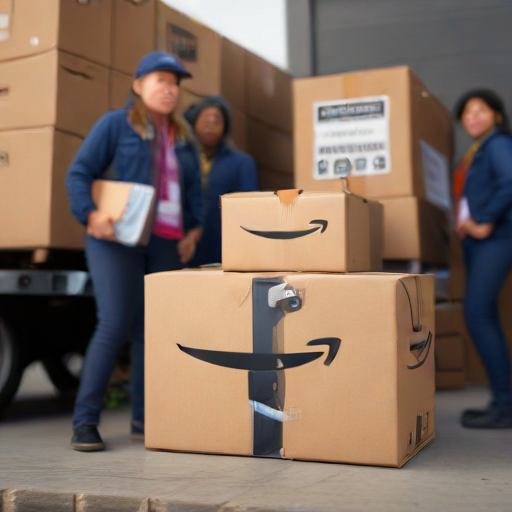Workers affiliated with the Teamsters union have initiated a strike at seven of Amazon’s delivery hubs just days before Christmas, a move that emphasizes ongoing tensions between labor and management. The strike was launched after Amazon failed to meet a contract negotiation deadline set by the union, prompting members to join picket lines on Thursday. Despite the strike, Amazon has asserted that it does not anticipate any significant disruptions to holiday shipments.
The union, representing approximately 10,000 Amazon workers at ten facilities, primarily focuses on organizing delivery drivers employed by contractors handling Amazon’s package deliveries. However, Amazon does not recognize these drivers as its employees and has resisted the union’s calls to negotiate. The Teamsters have also expressed concerns for warehouse workers, as they strive for improved wages, benefits, and working conditions.
The strikes are concentrated in several major cities, including Southern California, San Francisco, New York City, Atlanta, and Skokie, Illinois. While the exact number of striking workers has not been disclosed, local union leaders have indicated that the walkout will persist until a satisfactory agreement is reached. Some Amazon employees at an air hub in California and a warehouse in New York have also authorized strikes, demonstrating a broader commitment to the cause.
The Teamsters have long sought to bring Amazon to the negotiating table, having filed unfair labor practices against the company for refusing to engage when drivers attempted to unionize last year. Federal labor prosecutors have categorized Amazon as a “joint employer,” a classification that adds further pressure on the company.
While Amazon maintains that the strike’s impact will be minimal due to their carefully planned operations and relationships with major carriers like UPS, the potential for delays in shipments remains if the strike extends over several days. The company’s spokesperson mentioned they have strategies in place to mitigate any operational disruptions during this peak holiday period.
As we observe this unfolding situation, the strike underscores the ongoing dialogue and challenges within labor representation and rights in today’s gig economy. It also highlights the vital role unions play in advocating for workers, particularly during critical times such as the holiday season, when support and fair treatment are paramount for those in the industry.
In summary, this strike is not just a labor dispute but a significant moment in the broader conversation about workers’ rights, emphasizing the importance of fair compensation and working conditions during one of the busiest times of the year.
